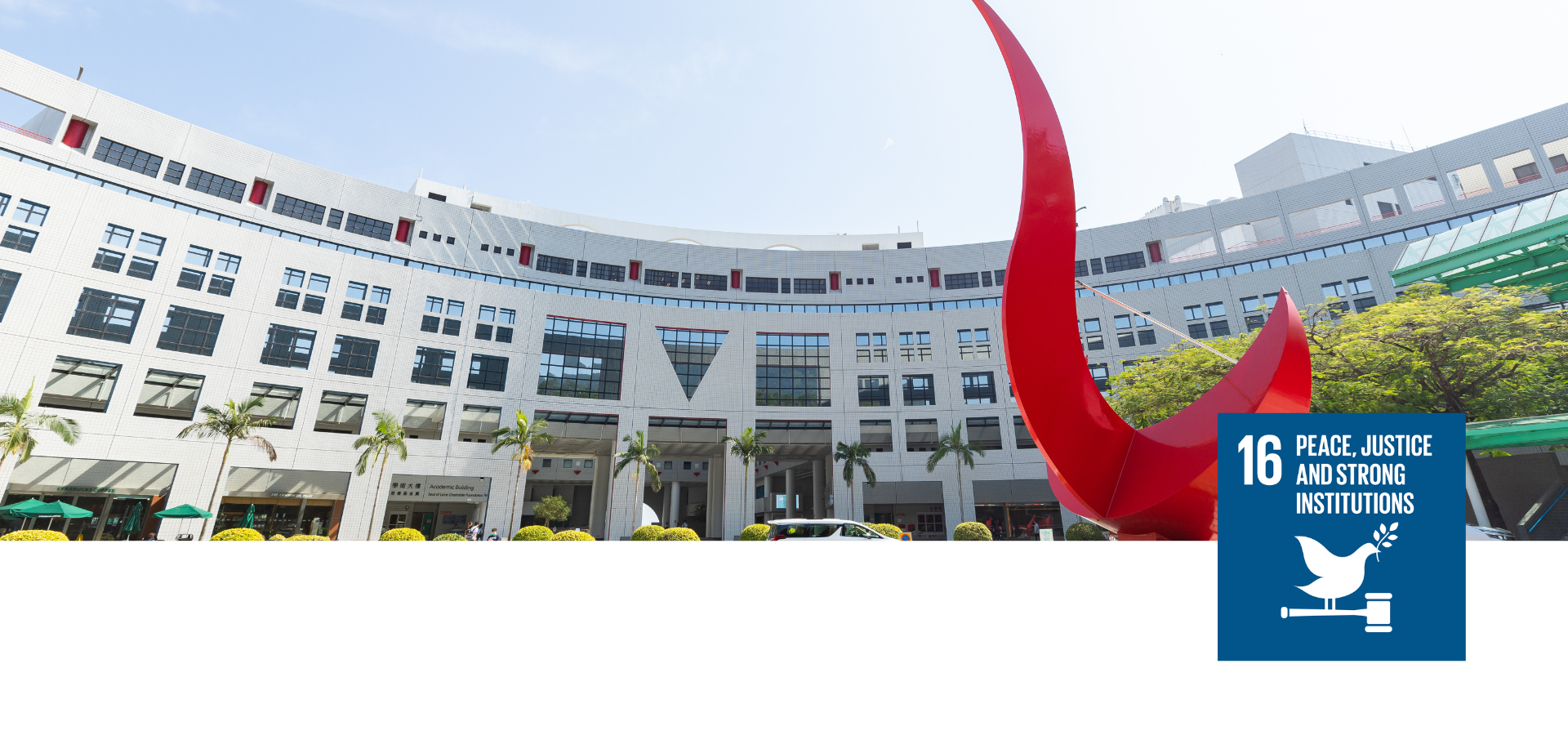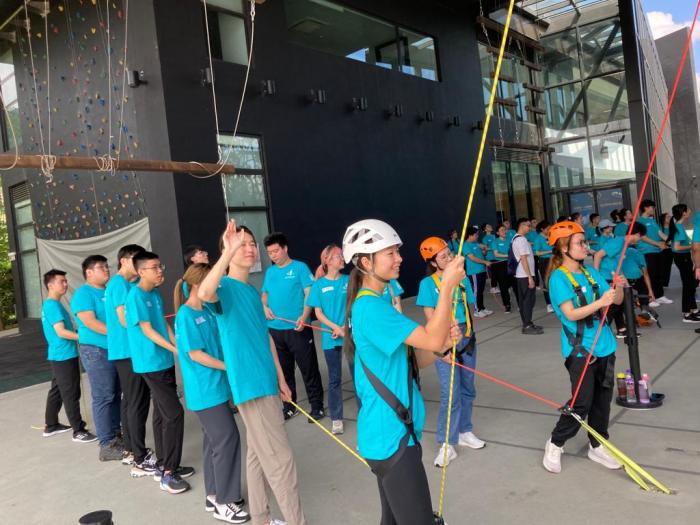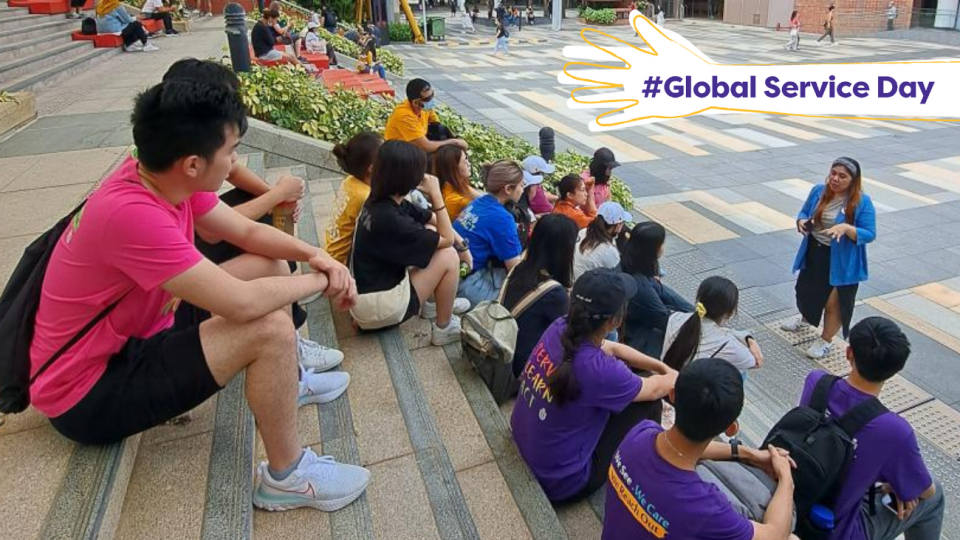
SDG 16: Peace, Justice and Strong Institutions
At HKUST, we are deeply committed to build a just and inclusive society to uphold a sense of belonging, both within our campus community and beyond. Through a wide range of projects and research, we explore the key aspects that shapes justice, transparency and inclusivity in society. These findings inform our institutional policies and practices, enabling us to create a safe and sustainable campus family where every member feels valued.
Curriculum
28 related courses were offered in the 2023-24 academic year.
Research
According to Science Direct, from 2020 to 2024, HKUST published 110 research papers addressing SDG 16.
24.55% of them are in the top 10% cite score and 69.4% are internationally co-authored.
Research Highlights
Publications
HKUST has been actively researching topics to promote better peace, justice and strong institutions.
The publication " Digital Democracy at Crossroads: A Meta-Analysis of Web and AI Influence on Global Elections " analyses the evolving role of the Web and AI in elections through a meta-study of 44 papers, highlighting how social media, big data, and generative AI have transformed political campaigns. Other publications like " Engage Wider Audience or Facilitate Quality Answers? a Mixed-methods Analysis of Questioning Strategies for Research Sensemaking on a Community Q&A Site " and " The real effects of transparency in crowdfunding " are also evidence of HKUST's effort in promoting peace, justice and strong institutions.
Policy
Equal Opportunities and Anti-discrimination Policy
HKUST is committed to fostering an inclusive environment where every member feels valued, respected, and empowered. In alignment of this, the Equal Opportunities and Anti-discrimination Policy was established to combat all forms of discrimination and inequality. The University outlined specific procedures of defence if one should be a victim while also providing guidelines for supervisors to handle the situation. In addition, the Diversity and Equal Opportunities Committee (DEOC) will serve as a central contact point for all related hearings and designated resource persons are stationed across faculty residences for readily available support and guidance.
Cybersecurity Policy
Information Technology has been an integral part HKUST’s day-to-day business, and the university recognizes the imminent threat of cyber-attacks. Our Cybersecurity Policy aims to maintain a healthy level of cybersecurity, where our information resources are confidential, secure and readily available for our members to access by meeting the Minimum Security Standard.
Whistleblowing Policy
HKUST deeply believes in upholding the utmost integrity within the working community and encourages our members to come forward with any found misconduct. Our whistleblowing policy is designed for any malpractice, misconduct, or irregularity issues that is outside of the University’s established policies and procedures. HKUST will make every effort to keep the identity of Whistleblowers confidential while the Audit Committee proceeds with the investigation, and any report received will be handled expeditiously.
Guidelines on Acceptance of Advantages
To adhere to integrity of all conducts, the University encourages all faculty members to be discerning in the acceptance of advantages. Our guidelines on acceptance of advantages policy, in general, discourages any gift, loan, fee, or reward that is given with corrupt motives. It is only when there is no conflict of interest between the university and all related parties that any type of advantages is accepted.
Policy on Modern Slavery, Child Labour, and Forced Labour
All forms of modern slavery, child labour, and forced labour are prohibited in HKUST by ensuring compliance with the relevant international and local laws, standards and conventions, including the Article 4 of the Hong Kong Bill of Rights (No slavery or servitude), ILO Convention No. 138 (Minimum Age) and ILO Convention No. 29 (Forced Labour). We promote ethical practices throughout the University.
Community Engagement
ICAC Student Ambassador
In collaboration with the Independent Commission Against Corruption (ICAC), HKUST launched the ICAC Ambassador Programme where the university empowers the students to uphold integrity and promote ethical values within the campus community. As part of the programme, students are encouraged to organize their own self-directed activities to engage with their peers in meaningful discussions that align with the mission of sharing the message of integrity.

Meeting with ICAC Ambassadors from different universities
Diversity, Inclusion, and Equity (DEI) Awareness Workshops
University-wide publicity campaigns were held to promote understanding and appreciation of diversity. These included celebrations of significant international diversity-related dates, such as International Women’s Day, International Day for the Elimination of Racial Discrimination, and Global Diversity Awareness Month.
The topic “Diversity and Equal Opportunities @ HKUST” was introduced in both staff and new student orientations to familiarize members with HKUST culture, policies, and available support. Workshops on a wide array of topics related to diversity, inclusion, and equity (DEI), such as sign language, neurodiversity, and unconscious bias, attracted over 1,500 participants.
Funding Scheme for Student Activities on SEN
The Funding Scheme for Student Activities on Special Educational Needs (SEN) supports student initiatives to organize events and activities that educate the HKUST community on the needs and concerns of students with SEN. This scheme aims to increase student leaders' knowledge on SEN, discourage discrimination, celebrate diversity, and foster the integration of students with SEN into daily campus life.
Reach Out to Migrant Domestic Workers
Reach Out to Migrant Domestic Workers was a collaborative event with PathFinders to aid the domestic workers through engaging in conversations with them. The volunteers were able to gain a deeper understanding of the issues and challenges experienced by migrant domestic workers in Hong Kong. This outreach emphasized the importance of equal treatment for all citizens and the protection of vulnerable groups, striving for a just and inclusive society.
